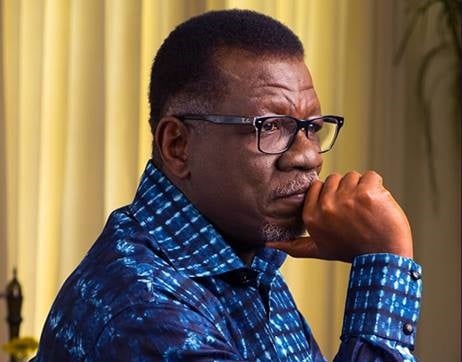Pastor Mensa Otabil, the Founder and General Overseer of the International Central Gospel Church (ICGC), recently expressed his views on divine involvement in political leadership during a sermon titled “A Way in the Wilderness.” Delivered at a program called Charisma, hosted by Reverend Eastwood Anaba in Bolgatanga, Ghana, Pastor Otabil stated his belief that God does not choose leaders for nations. He emphasized that if God were indeed involved, the mistakes seen in leadership, particularly in Africa, would not be as prevalent. His remarks highlight a critical perspective on the responsibilities of individuals in the democratic process, arguing that it is essential for citizens to actively engage in choosing their leaders rather than abdicating that duty to a divine entity.
Otabil challenged the notion that reliance on God’s will absolves individuals from their responsibility in leadership selection. He deemed such thinking as laziness, asserting that governance should be a reflection of the people’s choices. He encouraged the congregation to exercise their right to vote actively, framing it as a personal responsibility to seek divine guidance as they make those choices rather than waiting for divine intervention. His comments thus call for a proactive approach to citizenship, contending that human agency, rather than divine predestination, plays a pivotal role in shaping political leadership.
Pastor Otabil further acknowledged Africa’s various tribulations, ranging from poverty to underdevelopment, suggesting that these issues stem largely from mental and cultural barriers rather than a lack of divine support. He offered prayers for Africa, urging for a transformation in mindset and culture that would lead to better choices among its citizens. This appeal indicates an understanding that although spiritual endorsement may be significant, sustainable change requires actions rooted in personal and collective responsibility. Otabil’s invocation for “change makers” reflects a desire for proactive engagement among Africans, suggesting that spiritual awakening must be complemented by practical steps in society.
In addressing the importance of hard work in the Christian faith, Otabil highlighted that affliction and labor are integral to overcoming life’s challenges. He warned against the allure of laziness, which he believes hinders success. This perspective on hard work as a necessary virtue stands in contrast to a view held by some Christians that faith alone suffices for success. By advocating for diligence in pursuit of blessings and wellbeing, Otabil positions hard work as a divine expectation for believers, reinforcing the belief that faith should manifest through actionable steps in life.
Addressing the common dichotomy in Charismatic thinking, Otabil pointed out that some Christians mistakenly equate faith with passivity, neglecting practical responsibilities such as seeking medical help when needed. He urged individuals to recognize the harmony between faith and action, asserting that divine healing does not preclude the necessity for medical intervention. Otabil’s challenge to this dissonance in theological reasoning emphasizes a holistic approach to faith that encompasses both spiritual and physical dimensions, reinforcing the idea that seeking medical aid and relying on God can coexist without contradiction.
Otabil concluded his remarks by reiterating the importance of coherent actions that align with one’s beliefs. He pointed out that if Christians truly believe in God’s provision for health and wellbeing, they must also take responsible actions toward maintaining their health. This balanced perspective encourages believers to integrate their faith with practical living, thereby enhancing both personal well-being and societal progress. In summary, Pastor Otabil’s message calls for an active engagement in leadership selection, a commitment to hard work, and a recognition of the importance of both spiritual and physical actions in achieving holistic well-being.














